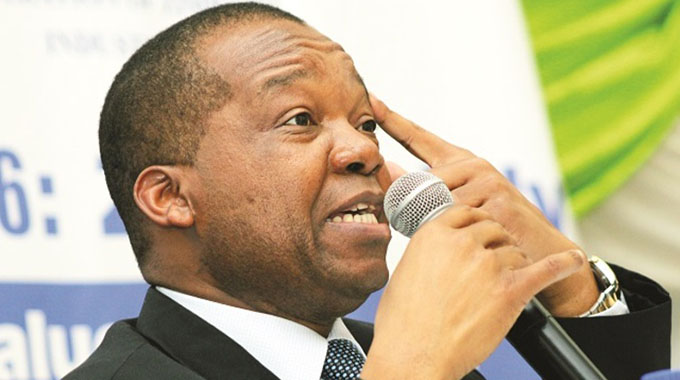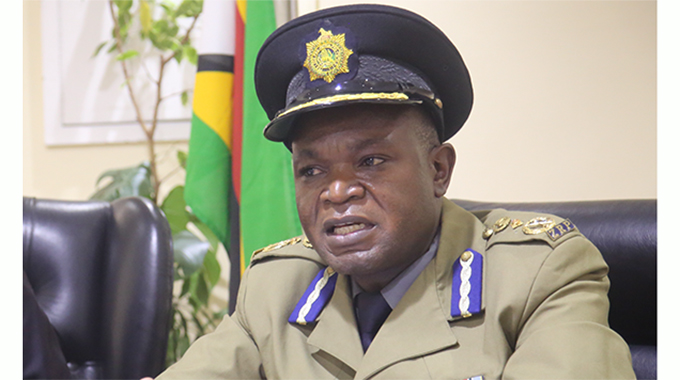EDITORIAL COMMENT : People’s force getting even better to serve

The Zimbabwe Defence Forces, whose special day is celebrated today, have built a remarkable reputation for professionalism and excellence over the decades since their formation soon after independence.
That reputation was seen most recently by the decision within SADC that the ZDF was to provide the principle training group of 304 troops as part of the SADC commitment to support Mozambique and basically take on the job of helping the Mozambican military upgrade its fighting forces so that they could deal with the terrorism in north-east Mozambique.
In effect, Mozambique reckons that while the SADC intervention of combat troops from a number of member states will help hold the line, the long-term solution requires a highly professional and well-trained Mozambican military and that is why they asked Zimbabwe to step in to help create that force.
The ZDF was created at independence largely from those in the armed forces of the liberation movements who wanted to remain in the military rather than return to civilian life and the more professional elements of the old Rhodesian military.
It needed a lot of goodwill to put all of this together and to start the serious training at all levels.
The first tests simply stressed the need for pushing the training levels. We all know of the legacy of Gukurahundi, which the country is now addressing, but what is less well known is the effect it had on the ZDF, and especially the army.
The gaps in training became obvious very early on and something serious was done about this with advanced training to create an effective professional force seen as the highest priority.
Impartial observers, such as the Catholic Justice and Peace Commission, noted in their reports at the time the dramatic fall in abuses to almost negligible levels as units were rotated through advanced training and the history of that era shows the dramatic rise in tactical successes as exceptionally well-trained troops returned from advanced training to start dealing with the South African trained insurgents.
In this second phase the ZDF won, because it was now a first class force.
That professionalism and competency were then tested on the other side of the country, as the dying apartheid regime started pumping more resources in its odd creation, Renamo, which at that stage was not a political party, but just a proxy force for South Africa.
The ZDF used its new-found professionalism and high level of competency to block raids into Zimbabwe and protect local communities, and to help Mozambique hold the line, basically providing security along the two communication corridors to the coast and then helping with the training of Mozambican troops.
That effective intervention brought Renamo to the negotiating table, allowed a sensible agreement to be struck, one that has held, saw Renamo converted into a normal political party and generally brought peace to Mozambique.
While the conversion of South Africa into a democracy ended the sort of intervention beloved by its old military, there were still regional problems.
Perhaps the most serious was the decline of the Democratic Republic of Congo into a very badly run dictatorship. That was not viable in the long run and when the collapse came it was bad.
A reasonable interim government cobbled together was faced with rebel columns advancing on Kinshasa and to prevent a major African state descending into a battleground of competing warlords SADC accepted the DRC as a member, and then three SADC members, including Zimbabwe, intervened to help hold the line.
Angolan, Namibian and Zimbabwean troops managed to block the warlords while the Congolese military was reformed and rebuilt.
The Zimbabwean contingent, in DRC it must be stressed with the approval of SADC and at the invitation of the recognised Congolese government, managed to stabilise a large swathe of the country giving politicians and diplomats the opportunity to hammer out the agreements that brought a fairly large degree of peace to the country and which have resulted in three sets of elections since.
That professionalism and competence has been seen inside Zimbabwe. Every year, even in a drought year, there is a flood somewhere, and the Air Force of Zimbabwe helicopters are there rescuing people stuck in trees.
Cyclone Idai was a whole couple of magnitudes worse, but the ZDF helped very quickly. Besides the helicopters, defence forces logistic units, trained to get supplies to anywhere in appalling conditions, helped get the essentials to the survivors.
And army engineer units spend a lot of their training time studying how to open blocked roads, build temporary bridges and generally open communications. So they did that, fast.
And now with Covid-19, defence force medics have been deployed to speed up vaccination, another emergency where the ZDF can help.
This stress on professionalism and service has been seen inside the forces. Many of the founder members of the ZDF are now retired, and the next few years will see the last of that first generation go on pension.
But they have ensured that those who are coming after them are in many ways even better, and are certainly better prepared as the lessons of the past are consolidated and hammered home.
Training is intensive, and has moved upwards into whole new levels.
The ZDF even has its own university. Fairly frequently some sort of course graduates and we as a newspaper report on this.
And in almost every course there are the foreign guests from friendly countries: other militaries obviously have a high regard for Zimbabwean training.
We, the people of Zimbabwe, can rest assured that not only are the ZDF ready and are well-trained professionals, but that they are pursuing excellence to be even better.









Comments